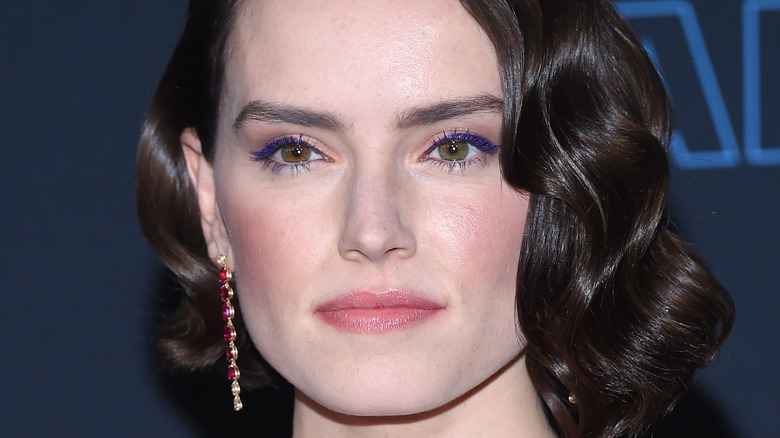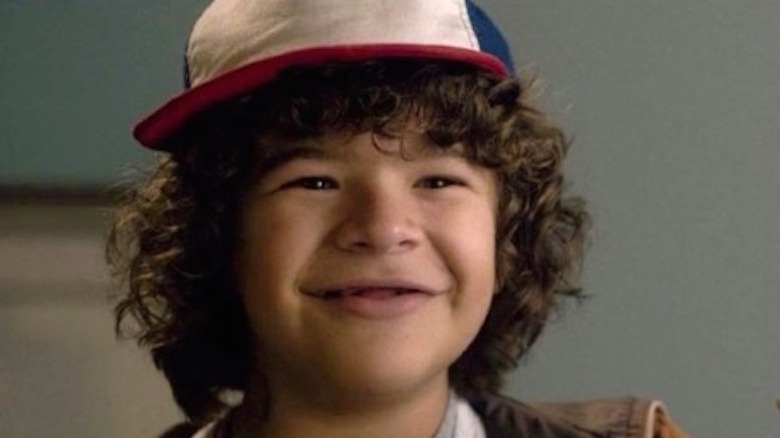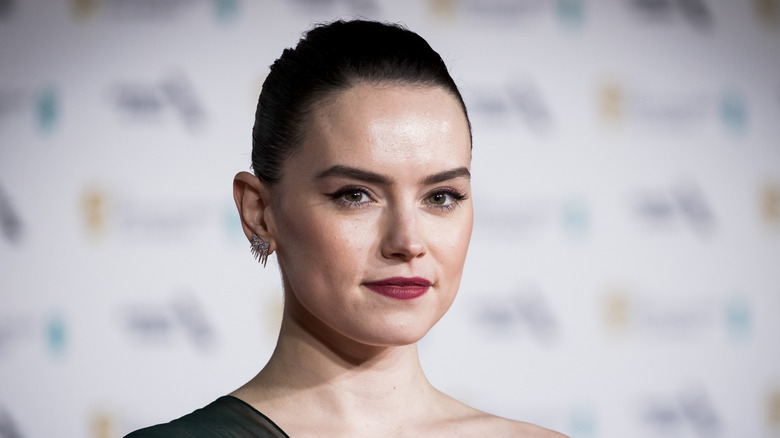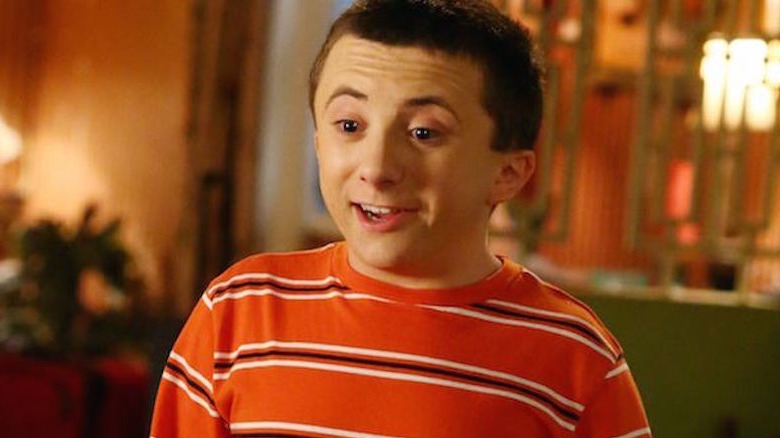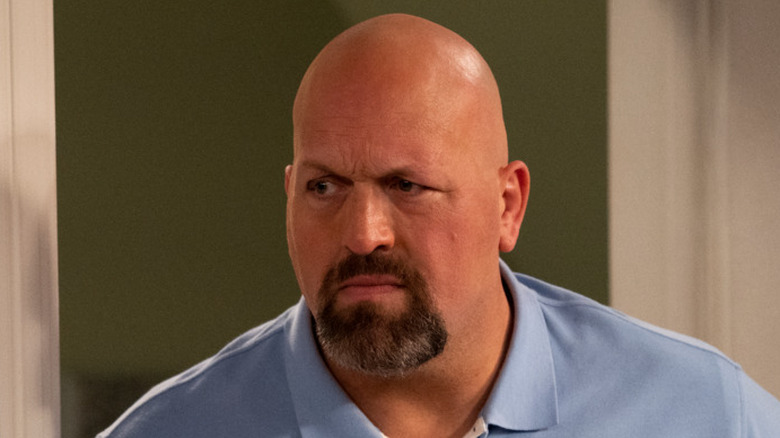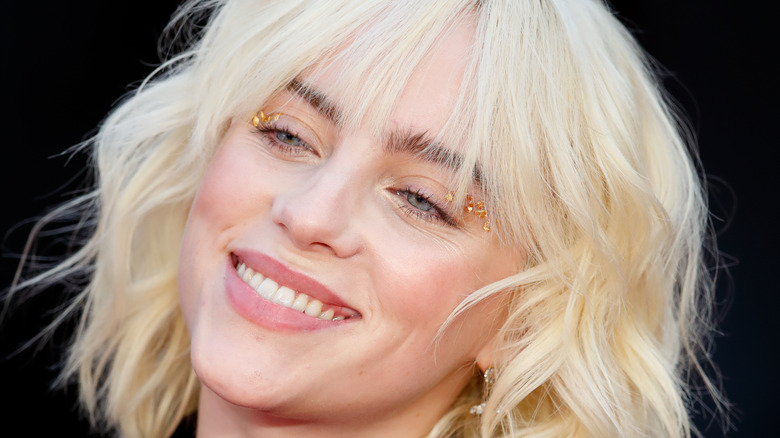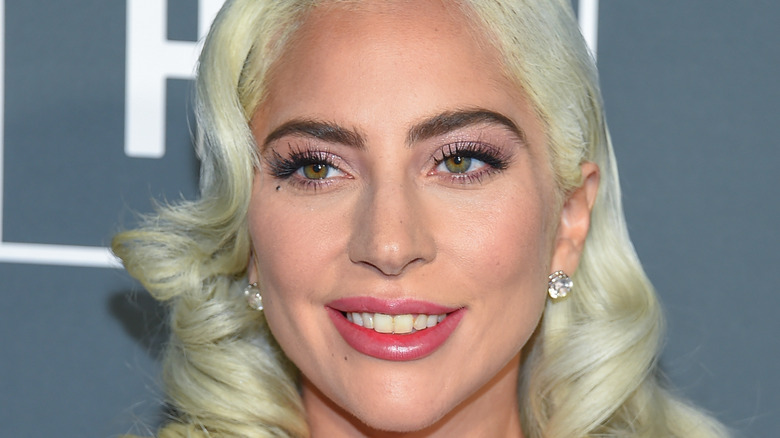Actors Who Have Rare Diseases And Medical Conditions
Science has eliminated many of the rare diseases that plague humanity for centuries. Smallpox, which dates back to the 3rd century BCE and killed 300 million people in the 20th century, was certified as completely eradicated in 1979. Several forms of polio have been wiped out, as has malaria from most countries on the planet. The World Health Organization is currently working to eliminate measles, syphilis, rabies, and leprosy.
Yet for all of the medical advances humankind has experienced, some 7,000 rare diseases remain active today, and less than five percent of them can be effectively treated. One in 10 Americans — approximately 30 million people — are believed to have some form of rare disease, and many of them are children who face disabling and potentially deadly symptoms.
Some of the individuals in that massive number are celebrities. Like others with rare diseases, they have fought hard to maintain their health or learned to live with its impact on their lives. Following is a list of famous people who have rare diseases and medical conditions.
Stranger Things' Gaten Matarazzo has a rare bone disorder
"Stranger Things" star Gaten Matarazzo announced to his Instagram followers in 2020 that he had undergone a fourth surgery for cleidocranial dysplasia (CCD), a rare genetic disorder that affects the development of bones and in particular, the skull and teeth. A subsequent post revealed that the surgery removed supernumerary teeth, which grow in the gums and prevent the exposure of adult teeth. According to Matarazzo, the surgery removed 14 such teeth and exposed six adult teeth.
Matarazzo has been a staunch advocate for information about the genetic condition, which can cause individuals to grow underdeveloped collarbones, or in Matarazzo's case, to lack them altogether. The condition also causes delayed closure of skull fissures, curvature of the spine, hearing loss, and decreased bone density.
Prior to joining the "Stranger Things" cast, Matarazzo said on "The Doctors" (via NBC News) that his condition prevented him from landing roles. "I would go three times a week up for auditions and just [hear] 'no' constantly," he said. However, when "Stranger Things" creators Matt and Ross Duffer, a.k.a. The Duffer Brothers, cast Matarazzo as Dustin Henderson on the series, they asked him if they could incorporate his condition into the character. In doing so, they and Matarazzo have increased awareness of CCD; an information page about CCD saw page views increase more than 100 percent after the Season 3 premiere of "Stranger Things," which mentioned Dustin's condition.
Sjogren's syndrome almost ended Venus Williams' career
Tennis champion Venus Williams' extraordinary run of wins -– seven Grand Slam singles wins and 14 Grand Slam doubles wins with her sister, fellow champ Serena Williams — began to crumble in 2011 when fatigue forced her to drop out of the US Open. Williams struggled to reach the quarter-final rounds at any Grand Slam tournament for the next three years. Williams soon sought medical attention, which revealed that she had a chronic autoimmune disease called Sjogren's syndrome.
Like other autoimmune diseases, Sjogren's (pronounced "SHOW-grens") causes the immune system to attack moisture-producing glands in the mouth and tear ducts. As a result, individuals with Sjogren's have chronic dry eyes and mouths. The condition also causes muscle and joint pain, and in some cases, it also affects major organs like the heart, lungs, and even the brain. Sjorgren's syndrome also affects more women than men, and typically older individuals, which made Williams' diagnosis a rare instance.
"I literally couldn't play tennis anymore," said Williams in an interview with The Guardian. A change in diet that traded animal products, including meat and fish, for raw vegan meals appeared to give her relief from the condition. Williams has slowly rebuilt her tennis career — she won the Grand Slam mixed doubles in 2016 — while also expanding into interior design, fashion, and business ventures (she and Serena are minority owners of the Miami Dolphins football team).
Gina Rodriguez lived with a thyroid disease
Golden Globe-winning actress Gina Rodriguez has been busy since her star-making series, "Jane the Virgin," ended in 2019. She serves as executive producer, two-time director, and cast member for the Disney+ series "Diary of a Future President," was top-billed in the 2021 science fiction feature "Awake," and lends her voice to projects ranging from the Netflix revamp of "Carmen Sandiego" to "Scoob!" and "Big Mouth."
Rodriguez also suffers from Hashimoto's disease, an autoimmune condition that causes inflammation of the thyroid gland and over time, can lead to hypothyroidism. Symptoms of hypothyroidism include fatigue, muscle weakness, sensitivity to cold, depression, and unexplained weight gain.
Rodriguez, who was diagnosed with hypothyroidism at 19 and Hashimoto's disease in her late 20s, said that the condition requires her to be vigilant about her health. "It affects so many aspects of your life," she told Self.com. Adjusting her thyroid medication proved helpful in reducing panic attacks and anxiety that came as a result of the condition, and eliminating gluten and dairy from her diet caused many of her symptoms to subside. "It feels like freedom," she said.
Endometriosis left Daisy Ridley shamed and in pain
British actress Daisy Ridley rose to fame playing tough, self-confident women like Rey in "Star Wars: The Force Awakens" and Viola in "Chaos Walking." Her performances are so believable that you'd never think Ridley would struggle with confidence in real life. But in a 2016 Instagram post, Ridley wrote (via EW) about the fallout that came as a result of endometriosis.
Ridley was diagnosed as a teenager with the disorder, which causes tissue that lines the uterine wall to grow outside of the uterus. While not fatal, it can be extremely painful, and cause excessive menstrual pain, gastrointestinal problems, and even lead to infertility. Approximately two to 10 percent of women between the ages of 25 and 40 are affected by the disorder.
For Ridley, endometriosis caused not only pain but also a skin disorder that upset her physical and emotional well-being. "I can safely say feeling so self-conscious has left my confidence in tatters," she wrote in the post (via USA Today). "I hate wearing makeup but I currently don't want to leave the house without it on."
After determining that the cause of the endometriosis was a hormonal disorder called polycystic ovary syndrome, Ridley was able to gain relief through treatment. She has encouraged other young women to be proactive with their health. "Keep on top of how your body is feeling, and don't worry about sounding like a hypochondriac," she wrote. "We only have one body, [so] let us all make sure ours are working in tip top condition, and take help if it's needed."
Meniere's disease may end music for Huey Lewis
In 2018, singer and actor Huey Lewis surprised fans of his '80s pop/rock group the News by canceling a slew of performance dates. The reason was Meniere's disease, an inner ear disorder that can cause hearing loss. "I can't hear the notes," he explained to NPR. "I just hear cacophony."
For Lewis, the diagnosis was "incredibly depressing. I spent two months in bed, really, fasting and trying all kinds of protocols, including steroids." Since then, Lewis has come to terms with his condition. "First of all, you can kind of get used to almost anything," he said. "And number two, I remind myself that there's lots of people that are worse off than I am... I'm still, overall, a lucky guy."
He also remains positive in regard to music. The band released its 10th studio album, "Weather," in 2020, though much of its material was recorded prior to his diagnosis. Lewis himself is busy writing songs for a musical based on his sizable catalog of hits. He also envisions a possible return to the stage with the band. "I'm hoping to recover my hearing so we play live, but can't right now," he stated. "In the meantime, I'm staying as creative as I can."
Atticus Shaffer's condition causes fragile bones
Actor Atticus Shaffer played Brick, the youngest of the three eccentric Heck children, for nine seasons on the ABC sitcom "The Middle." He's also a prolific voice-over actor for series like "Steven Universe," "The Lion Guard," and "Star Vs. the Forces of Evil." While navigating Hollywood, Shaffer also contends with osteogenesis imperfecta (OI), a genetic condition also known as "brittle bone disease." Shaffer's condition is considered Type IV (there are 21 types), which can cause bones to fracture easily and short stature (Shaffer is 4'8").
Shaffer credits his mother with giving him the impetus to live life according to his own wishes and not the restraints caused by the disease. In an interview on "The View" (via Hollywood.com), Shaffer said that his mother refused to accept a doctor's statement that her son would spend his life in a wheelchair. "[She] would not have it, at all," he said. "If it wasn't for my mom, I would not be standing here — actually standing. She never wanted me to feel any different."
To that end, Shaffer maintains an exceptionally busy acting career as well as vlogs on YouTube and Twitch, which are dedicated to video gaming. He also takes time to meet with other individuals with OI, and to advocate for them at medical events. "I met a lot of people with OI, and they all had this amazing, individual personality," he said. "I figured now would be the right time to ... give them inspiration and gratitude, and given them a voice."
Graves' disease took Missy Elliott out of the music game
From the late 1990s to the mid-2000s, Missy Elliott was a hit-making machine, selling more than 30 million records in the United States and earning the title of best-selling female rapper in history. But after a slew of hit singles like "Get Ur Freak On" and "Work It," the musician, director, and occasional actor dropped out of view for nearly a decade. In an 2015 interview with "Billboard" magazine, Elliott revealed that the cause of her disappearance from the charts was an autoimmune condition known as Graves' disease.
Graves' disease is caused by an overactive thyroid gland, which produces excessive hormones. Those diagnosed with Graves' disease experience a host of symptoms, from weight loss to anxiety and tremors. For Elliott, the latter was so intense that she couldn't even hold a pen. "It [also] causes hair loss, your eyes bulge," said Elliott in the interview. "My blood pressure was always up from just overworking."
After nearly crashing a car due to leg spasms produced by the disease, Elliott began treatment, which consisted of radiation therapy and medication. Her thyroid is now functioning properly, but Elliott also knows that she needs to maintain her health regimen in order to stay productive. "You live with Graves' disease for the rest of your life," she explained.
An overactive thyroid made the Big Show big -- and unwell
Acromegaly is a disease of the pituitary gland that causes the excessive release of growth hormones, resulting in large hands, feet, and facial features. A number of famous people have been diagnosed with the condition, ranging from actors Ted Cassidy (Lurch on "The Addams Family") and Bond villain Richard Kiel to mixed martial artist Antonio "Bigfoot" Silva.
Several professional wrestlers have parlayed the excessive growth caused by the disease into ring careers, including Andre the Giant, The Great Khali, and former WWE superstar, actor and current AEW wrestler and commentator Paul Wight, aka Big Show. He was diagnosed with acromegaly while playing college basketball for Wichita State, and underwent a procedure to correct the issue with his pituitary gland.
As Wight told New York City's Hot 97 radio, the procedure is a delicate one, because "the pituitary gland runs so many senses: your eye moisture, tear ducts, nasal passages, and your testosterone." Had there been a problem with the surgery, Wight would have required medication "just to try and be normal."
If he'd skipped the operation, the condition could lead to other health issues, including diabetes and even a shortened life span. Thankfully, everything went well. "I got lucky with it, [but] I still have to pay attention to it," he said.
Synesthesia triggers many senses for Billie Eilish
In addition to being a multi-Grammy-Award-winning music artist, songwriter, video director and clothing designer, Billie Eilish is also a synesthete. The term refers to synesthesia, a neurological condition that involves sensory stimulation. For synesthestes, the triggering of one sense will also cause the involuntary triggering of another sense. One of the most common forms of the condition is known as grapheme-color synesthesia, which causes the synesthete to experience colors when considering letters or number.
Eilish explains her experience with synesthesia in this way: "Every person I know has their own color and shape and number in my head," she told Rolling Stone. Her brother and musical collaborator, Finneas — who also has synesthesia — triggers an image of an orange triangle. However, in Eilish's mind, the word "Finneas" also produces a sensation of dark green.
Eilish says that her songs provoke different sensory responses, including visual and tactile sensations. She also smells her songs: "Bad Guy," for example, is "yellow, but also red, and the number seven," she explained. "It's not hot, but warm, like an oven. And it smells like cookies."
Emily V. Gordon's illness inspired The Big Sick
The Oscar-nominated comedy-drama "The Big Sick" details the real-life romance between star and comedian Kumail Nanjiani ("Eternals") and writer Emily V. Gordon, who's played by Zoe Kazan in the movie. Michael Showalter's film follows the couple from their initial courtship to a major crossroads, when a seemingly innocuous illness resulted in Gordon being diagnosed with an extremely rare form of arthritis.
Tests revealed that Gordon had adult-onset Still's disease (AOSD), an autoimmune condition that inflames the internal organs and if untreated, can cause them to shut down. The threat to Gordon's health was so grave that she was put into a medically-induced coma. Though she eventually regained her health, there is no cure for AOSD.
Today, Gordon and Nanjiani, who were married one year after she recovered from her illness, keep a close watch on episodic flares of AOSD. "I just have to practice self-care in the ways we all should be doing — get enough sleep, eat healthy and regularly, exercise and keep my stress and drinking down," Gordon told the Hollywood Reporter. She says that Nanjiani is a crucial component to maintaining her good health. "My parents call him my lion, and he really is," she explained. "At times when I'm not great at self-care, he will force me to be good about it."
Javier Botet's condition made him a horror hero
Chances are that if you've been scared by a non-CGI monster in a recent horror movie, Javier Botet was the man behind the makeup. The Spanish actor has played some of the most unsettling creatures in recent horror movies, from The Crooked Man in "The Conjuring 2," to the Hobo and Witch in "It," to Slender Man in the eponymous 2018 thriller.
Botet is able to embody these characters because of his physical acting talents, as well as a condition called Marfan syndrome. The genetic disorder leaves individuals with exceptional height, a thin and overly flexible body, and long arms, legs, and fingers. Botet, who was diagnosed with Marfan syndrome at the age of six, grew to a height of 6'6" but weighed just 120 pounds.
Botet, who grew up loving monsters and aliens, began acting after a teacher at a special effects workshop suggested that he would be perfect for such roles. "I didn't realize, but I was born to perform," Botet told the BBC.
Botet's roles require him to wear heavy makeup prosthetics for long periods of time, but he never tires of the final result. "I see in the monitor this monster appearing — it's beautiful," he told the Hollywood Reporter. "And I think, 'Yes! I am that creature!'"
Lady Gaga contends with multiple illnesses
Diehard Lady Gaga fans undoubtedly recall disappointment over the cancellation of the singer's world tour in 2013. Gaga cited chronic pain as the reason for the postponed dates, and later revealed that the cause of the pain was due to a condition called synovitis, which she also noted may have been due to an injury from a performance.
Synovitis is caused by inflammation of the synovial membrane, which is tissue inside the joint cavity. Symptoms include swelling and increasingly intense joint pain, which if left untreated can lead to deterioration of the joints. In most cases, the inflammation is caused by arthritis or damage to the joints. For Gaga, the pain that comes with synovitis made it nearly impossible for her to perform at the level of intensity that her fans have come to expect.
"I had a tear on the inside of my joint and huge breakage," she told Arthritis magazine (via the BBC). "The surgeon told me that if I had done another show, I might have needed a full hip replacement. I would have been out at least a year, maybe longer."
In 2017, Gaga again canceled dates in Europe due to chronic pain, which she revealed was due to fibromyalgia, a disorder which affects tissues in the muscles and joints and causes lingering pain, fatigue, and sleep problems.
Imagine Dragons' Dan Reynolds fought a rare form of arthritis
Singer-songwriter Dan Reynolds, who fronts the Grammy-winning rock band Imagine Dragons, announced in 2015 that he has ankylosing spondylitis (AS). The inflammatory disease is a form of arthritis that impacts spinal joints, resulting in severe and often debilitating pain. Eventually, individuals with AS may lose spinal mobility due to the vertebrae cementing together.
Reynolds, who had been diagnosed with the disease in his early 20s, said that he spent much of the ensuing time period wracked with pain. "It was devastating," he told CreakyJoints.org. "My blood pressure was through the roof because I was in so much pain constantly." Adding to this daily challenge was the fact that AS is a genetic condition that can affect families: four of Reynolds' eight siblings also have AS.
After years of physical pain, depression, and expensive medical bills, Reynolds began a course of treatment, prescribed for him by a rheumatologist, that included medication produced from living organisms — also known as a biologic drug. The treatment "changed everything" for Reynolds, who currently has what he describes as "low disease activity," though he still experiences flare-ups. In 2018, he partnered with the non-profit Spondylitis Association of American and the pharmaceutical company Novartis to launch an awareness campaign about AS.
Flexibility revealed a rare condition to Jameela Jamil
British media presenter and "The Good Place" star Jameela Jamil posted an image on Twitter in 2018 (via Self) which showed her arm in hyperextension, which occurs when a limb is moved beyond its normal range of motion. When she posted a video in 2019 in which she stretched the skin on her cheeks, a follower asked if she had Ehlers-Danlos syndrome (EDS), a genetic disorder which affects the body's connective tissue. Jamil responded, "Indeed."
Ehlers-Danlos syndrome is actually a group of 13 related disorders, each of which affect the tissue in tendons and ligaments. It's believed to be caused by a genetic mutation, though science has yet to definitively label a cause for EDS. Most individuals with the condition first notice its symptoms — very flexible joints, which can lead to sprains, dislocations, and arthritis, and stretchy skin that can cause bruising and scarring — at a very young age. Certain forms of EDS can have more debilitating effects on the heart and arteries or cause abdominal pain.
Jamil, who was diagnosed with EDS at the age of nine, was honored in 2019 by the Ehlers-Danlos Society with its Patient Advocate of the Year Award. "I hope to do my part to raise awareness and encourage more research, and more science, around discovering how we can support people of this community," she said in her acceptance video.
